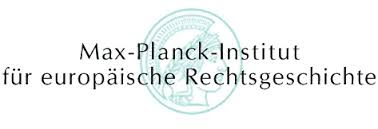WHAT The Making of Commercial Law Fifth Conference, Historiography of Commercial Law: Past, Present, and Future
WHEN September 26-28, 2017
WHERE University of Helsinki, Law Faculty, Helsinki
deadline March 31, 2017
“The Making of Commercial Law” Conference n:o 5 - Historiography of Commercial Law: Past,
Present, and Future (Helsinki, 26-28 September 2017), Doctoral school
session
The
organisers of the 5th conference of the project ”The Making of Commercial Law”
are pleased to call for papers for a doctoral school session at the upcoming
conference ”Historiography of Commercial Law: Past, Present, and Future” to be
held in Helsinki, Finland on 26-28 September, 2017. The
director of the project is Prof. Heikki Pihlajamäki (University of Helsinki,
email: heikki.pihlajamaki@helsinki.fi), and it is funded by the Academy of Finland and the
Finnish Cultural Foundation.
The
project seeks to study the history of commercial law through contemporary scholarly literature
and statutory material as well as court records, thus re-evaluating the concept of a medieval and early
modern lex mercatoria. According to critics, the main
problem with this concept is that it is lacking empirical evidence, at least if
a legally binding commercial practice in the form of lex mercatoria is thought
to have covered more or less the whole European continent. More local studies
are still needed, however, to find out to what extent common rules or practices
existed, how binding they were, and whether commercial disputes were solved in
courts of law or elsewhere in different parts of Europe. Because historical
arguments have been used to bolster modern legal theories of modern lex
mercatoria, it is pivotally important to screen the historical argumentation
and to do it comparatively, setting national histories in an international
context.
This conference aims to examine the
historiography of commercial law in a broad perspective. First, there will be
presentations by invited scholars from various European countries discussing
the historiography in their respective regions (The Past). The second
conference day will begin with a debate with invited historians and
positive-law scholars discussing, e. g., the relationship between history and
positive law in commercial matters (The Present). The final part of the
conference is dedicated to a doctoral
school for Ph.D. students introducing their current research (The Future). The
preliminary programme of the Past and Present sections is available on our
project website: http://blogs.helsinki.fi/makingcommerciallaw/
Six Ph.D.
students will be selected through this open call to participate in the doctoral
school session. The presentations (15 min) will first be commented by a senior
researcher (10 min) followed by a discussion (10 min) Papers may cover the
history of commercial law from the medieval to the modern period. Presentations
should be in English. For the six selected
students, hotel accommodation in single rooms for two nights in Helsinki and
travel costs up to 500 euros per person will be paid. More students
may be selected to participate at their own cost and conference fee of 50 euros.
To offer a paper, please send the title of the
paper, a short abstract (200-400 words), and a short CV to the project
coordinator Jussi Sallila (jussi.sallila@helsinki.fi)
by 31 March, 2017. Accepted papers
will be announced by 15 April, 2017.




